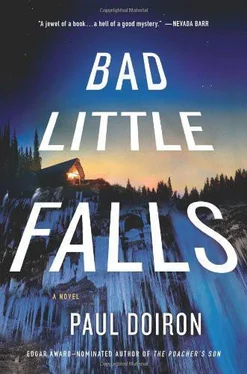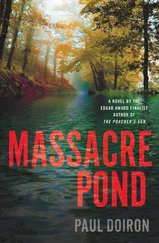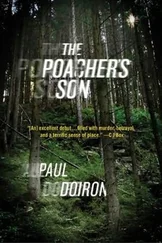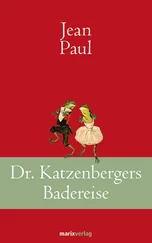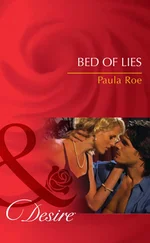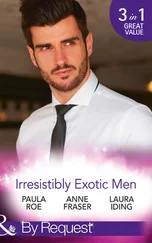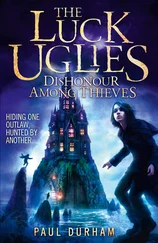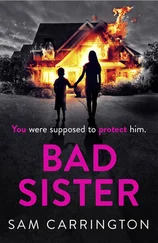Paul Doiron - Bad Little Falls
Здесь есть возможность читать онлайн «Paul Doiron - Bad Little Falls» весь текст электронной книги совершенно бесплатно (целиком полную версию без сокращений). В некоторых случаях можно слушать аудио, скачать через торрент в формате fb2 и присутствует краткое содержание. Жанр: Криминальный детектив, на английском языке. Описание произведения, (предисловие) а так же отзывы посетителей доступны на портале библиотеки ЛибКат.
- Название:Bad Little Falls
- Автор:
- Жанр:
- Год:неизвестен
- ISBN:нет данных
- Рейтинг книги:5 / 5. Голосов: 1
-
Избранное:Добавить в избранное
- Отзывы:
-
Ваша оценка:
- 100
- 1
- 2
- 3
- 4
- 5
Bad Little Falls: краткое содержание, описание и аннотация
Предлагаем к чтению аннотацию, описание, краткое содержание или предисловие (зависит от того, что написал сам автор книги «Bad Little Falls»). Если вы не нашли необходимую информацию о книге — напишите в комментариях, мы постараемся отыскать её.
Bad Little Falls — читать онлайн бесплатно полную книгу (весь текст) целиком
Ниже представлен текст книги, разбитый по страницам. Система сохранения места последней прочитанной страницы, позволяет с удобством читать онлайн бесплатно книгу «Bad Little Falls», без необходимости каждый раз заново искать на чём Вы остановились. Поставьте закладку, и сможете в любой момент перейти на страницу, на которой закончили чтение.
Интервал:
Закладка:
“Careful out there,” he said. “It’s not a fit night out for man nor beast.”
“I suspect the beasts know better than to venture out into a blizzard.”
He shook my gloved hand with drunken formality and opened the door for me. A gust of wind caught it and snapped it open. The tipsy veterinarian grappled with the knob to regain control.
Snow was swirling like white smoke in the porch light and billowing from all directions. The sheer force of it made my eyes water. I had misjudged the storm. This one was the real deal.
My Jeep had burrowed deep into a snowbank. At first I had trouble waking it. The engine grumbled for a while before it turned over.
I turned the wheel and swung around through a windblown drift. I tried the high beams and the low beams and decided there was no appreciable difference between the two. Eventually I found my way back to the road and turned west, headed for Whitney. My hyperbolic estimation of the time it would take to get there-three or four hours-might not be out of line, I decided.
I could understand why my friend Charley Stevens had wanted me to meet Kendrick. If even half his exploits were true, he definitely deserved a profile in the New York Times. And if he knew the wilds as well as I suspected, then he might prove useful to me down the line. Still, something about the self-styled mountain man rubbed me the wrong way: His confidence seemed to border on monomania.
I hadn’t seen much of Charley and his wife, Ora, over the previous months. They’d been forced to leave their beloved cabin in western Maine when a real estate developer bought the land out from under them. Ora had written a lovely note to offer me consolation after Sarah moved to D.C., and she promised to invite me to dinner at their new home, but so far, that hadn’t happened. Every few weeks I’d get a call from Charley, who wanted to chew over some gristle of news, but he often seemed preoccupied by issues he wouldn’t discuss, and I had the good manners not to ask what was troubling him.
I’d never made friends all that easily. After the evening at Doc’s, it was safe to say that dinner parties with veterinarians and dogsledders would not become the basis of a satisfying new social life, either.
Everyone has heard the old saying that the Eskimos, or Inuit, have umpteen different words for snow. The idea is that they live closer to their environment than we do and thus have not lost the ability to differentiate among the multitudinous forms freezing precipitation can take. Where we see snow, the Inuit see subtleties.
This charming legend, like most charming legends, is false. The Inuit have just about as many words for snow as do English speakers; they just tend to combine their terms in certain ways to add specificity to their meteorological conditions.
I have no doubt, however, that the Inuit recognize the difference a few degrees in temperature can make in shaping a snowflake. Warmer weather means wetter snow. Wet snow is heavy; its weight shatters tree branches. It clings to power lines and brings them crashing down. On the road, it turns to slush and sends tractionless cars skipping into ditches. Wet snow melts quickly in your hair and runs down the back of your neck. It follows you into your house by riding in the treads of your boots and leaves puddles to mark its passage. I know this because, like the Inuit, I live mostly outdoors in the winter.
Because of the low-pressure front pushing down from Canada, the snow that was falling in the road was not wet, but in fact very dry. The wind whipped it around like white sand in a white desert, forming metamorphic dunes and ridges that changed shape while I watched. Dry snow carries its own dangers. It clings to nothing, not even itself, and is so light it can be stirred by the faintest breeze, turning a black night blindingly white. Weightless, it resists plowing and shoveling. It covers your tracks in the woods, making it easier for you to get lost, and because dry snow is the harbinger of subzero temperatures, it makes losing your way a potentially life-threatening mistake.
I’d been on the road for fifteen minutes or so when my cell phone rang in my coat pocket. The number on the display told me that the caller was Larrabee.
“Doc? What’s wrong?”
“My neighbor Ben Sprague just called. He and his wife, Doris, just had someone show up at their door, frozen solid. They want me to come over and have a look at the guy. It sounds like he’s in rough shape. Would you mind heading back this way? I’m in no condition to drive.”
“Where’s Kendrick?”
“He’s going to head over to the Spragues’ on his dogsled.”
“I’ll be there as soon as I can.”
“It sounds like that poor fellow is in rough shape,” Doc said again for emphasis.
Without a second thought, I did a slow U-turn and began creeping through the blizzard to Doc’s farmhouse.
I found him at the foot of his drive, bundled up from head to toe, with only the tip of his nose and his fogged-over eyeglasses exposed. He wore an Elmer Fudd-style hunting hat with the flaps buttoned under his chin, and he’d wrapped a scarf tightly around his mouth and beard. He was toting his black doctor’s bag again. I wondered what medicine or instruments a veterinarian might possess to treat a human being for frostbite and hypothermia.
He climbed in beside me, set his leather bag on his knees, and pulled the safety belt tight across his chest. “The Bog Pond Road is up here on your right,” he said. “Look for the tall mailbox.”
The tall mailbox? Soon enough, I saw a candy-striped pole sticking up from a snowbank. Nine feet up in the air, a mailbox was balanced on top of it. The words AIR MAIL were painted on the side-someone’s idea of a real knee-slapper.
The Bog Pond Road was in considerably worse shape than the main drag. You would have believed it had been months since a plow truck last visited. The snow was piled above the headlights of my Jeep, yet somehow we managed to push through the drifts without getting stuck.
We passed a darkened trailer that seemed to have been abandoned for the winter, then another ranch house with boarded-up windows.
“What’s that noise?” asked Doc.
“Where?”
The raging wind was so loud, I almost didn’t hear the snowmobile. A single yellow light, like a bouncing lantern, showed in the dark ahead of us. While we watched, it grew larger and larger, brighter and brighter. Some fool was riding his sled straight down the middle of the road.
“Can’t he see us?” asked Doc.
I let up on the gas and engaged the clutch. The Jeep crunched to a halt.
The snowmobile seemed to be accelerating as it drew nearer.
Larrabee pushed himself back against the seat and straightened his arms against the dash. “That idiot is playing chicken!”
I clenched my molars, but at the last possible moment, the snowmobile veered off to our right, narrowly missing a row of spruces that ran down the hill. I caught a glimpse of a goblin-green sled with a person dressed in the same color snowmobile suit. Then the rider disappeared into the darkness behind us.
“Who the hell was that?” said Doc.
Unbidden, the face of Barney Beal popped into my head. “I don’t know,” I said, “but he’s going to wrap himself around a tree if he keeps that shit up.”
I put the Jeep into gear. The wheels spun and the vehicle began to shake like a dog just emerging from a cold lake. We were going nowhere fast.
“The Spragues live at the bottom of this hill, not far from the Bog Stream bridge,” Doc said. “We can walk there.”
While Larrabee waited, I grabbed a few supplies. I pulled a halogen headlamp over my Gore-Tex cap. I dumped ice-fishing tip-ups out of an ash pack basket. I found a wool blanket and a wilderness first-aid kit.
Читать дальшеИнтервал:
Закладка:
Похожие книги на «Bad Little Falls»
Представляем Вашему вниманию похожие книги на «Bad Little Falls» списком для выбора. Мы отобрали схожую по названию и смыслу литературу в надежде предоставить читателям больше вариантов отыскать новые, интересные, ещё непрочитанные произведения.
Обсуждение, отзывы о книге «Bad Little Falls» и просто собственные мнения читателей. Оставьте ваши комментарии, напишите, что Вы думаете о произведении, его смысле или главных героях. Укажите что конкретно понравилось, а что нет, и почему Вы так считаете.
